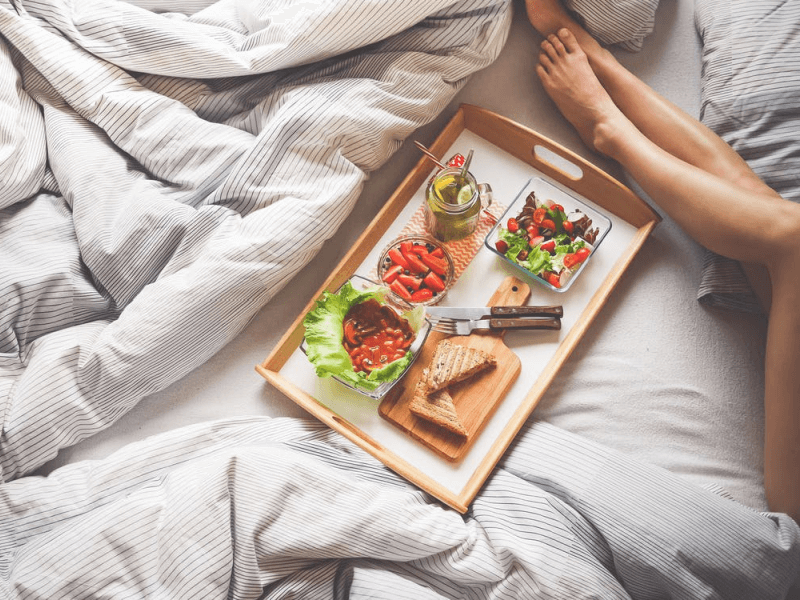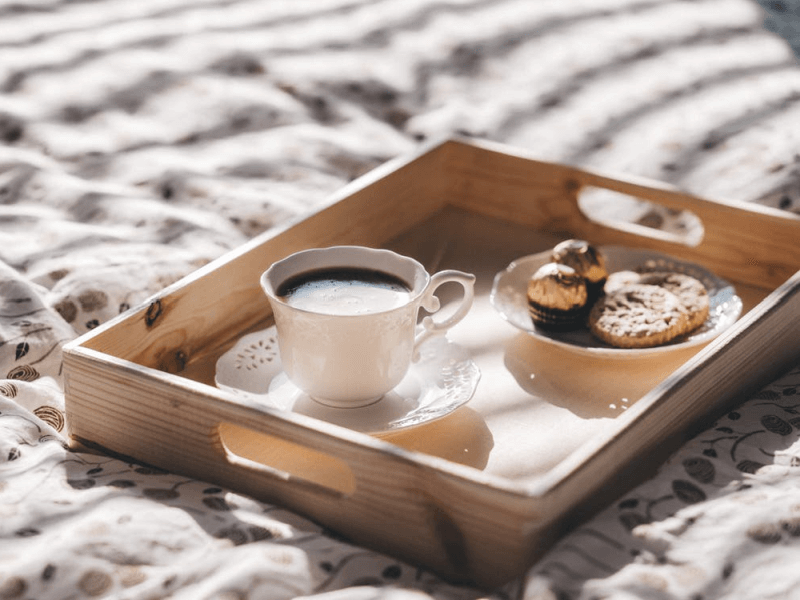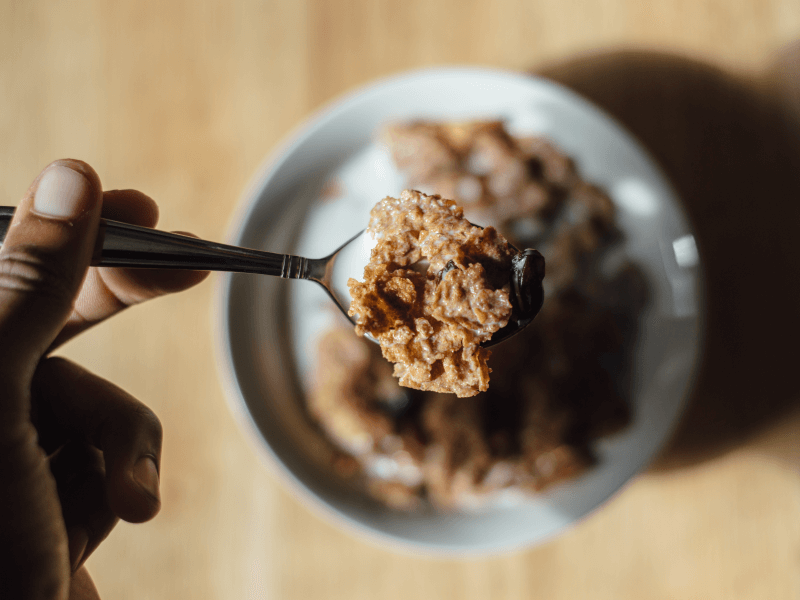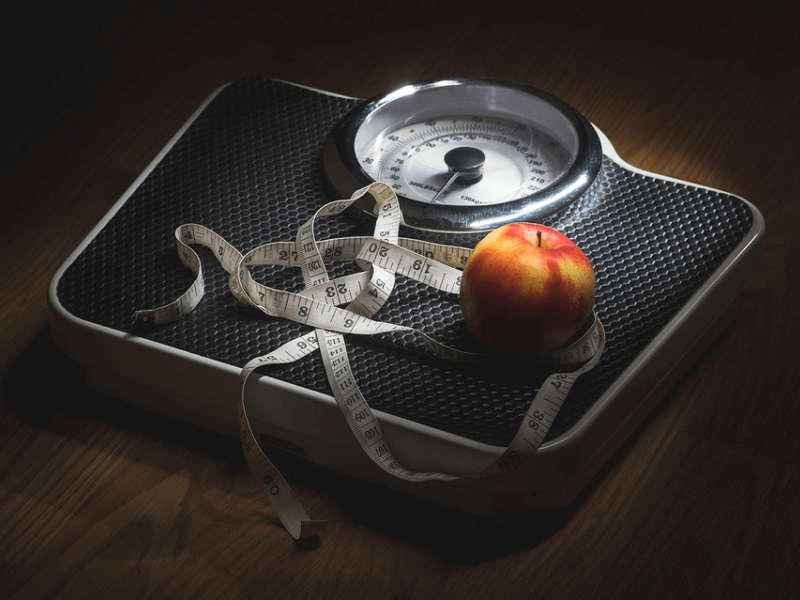What you eat and how you snooze are deeply intertwined. In turn, the relationship between dietary and sleep habits influences overall health. Let’s look at it from both sides and explore how we can improve.
How Does Diet Affect Sleep?
One of the immediate differences you will observe is a change in your sleep pattern—and it goes both ways. Heavy meals and snacks consumed before bedtime can delay the onset of sleep, a study finds.
However, the reverse may also happen; another study shows that meals may actually help you sleep earlier. The difference actually lies in what you eat.

What Not to Eat Before Bedtime
Heavy meals consisting of food low in fiber and high in saturated fat will delay your bedtime and adversely affect sleep quality. A study observes that a diet like this may result in less restorative sleep and more sleep interruptions throughout the night.
Acidic and spicy foods should also be avoided. These can cause or increase propensity for heartburn, especially if you already suffer from acid reflux. Once you feel the discomfort brought on this, lying down only makes it worse. That burning feeling in your chest will keep you awake and probably delay your bedtime considerably.
Sugar and caffeine are also culprits that can mess with your shuteye. Pay particular attention to food and drink that may contain these ingredients, even if it’s not obvious. For example, everyone knows that coffee can keep you awake; but chocolate and sodas contain caffeine, too, as well as sugar. Check food labels carefully. It’s also best to just avoid traditional treats and desserts—cookies, cakes, candies—in general.

Alcohol consumption is tricky when it comes to affecting your sleep. Yes, it may help you fall asleep faster; in fact, it’s common knowledge that it can relax you and act as a mild sedative. However, as your body begins to process it, alcohol can actually disrupt your slumber and wake you in the middle of a sleep cycle. Overall, it does more harm than good.
This doesn’t mean that you should go to sleep hungry. Not eating enough before going to bed will also degrade sleep quality. The trick is to choose food that won’t interfere with your snoozing later on, and to eat them three or more hours before bedtime.
What to Eat Before Bedtime
Meals high in carbohydrates—especially the complex kind—can increase drowsiness. Bananas, potatoes and sweet potatoes are good choices; even better because they contain potassium, which aids in relaxing muscles. In general, you should aim to consume more carbohydrates and less protein for dinner. Other options: whole wheat bread, quinoa, and even popcorn.

What about drinking milk? Although milk contains tryptophan—the same amino acid responsible for knocking you out after a turkey-filled Thanksgiving dinner; also present in eggs, other poultry, and some nuts and seeds—a glass isn’t enough to actually affect our sleep patterns. However, it doesn’t hurt; and it does go well with other food that’s good for you. If you feel peckish between dinner and bedtime, a small bowl of healthy cereal—shredded wheat or muesli, for example—will do you good.
How Does Sleep Affect Diet?
Now that we know how the way we sleep is affected by what we eat, it’s time to look at it the other way around. Studies show that many of the same food choices that are detrimental to sleep quality—high in fat, high in calories, simple carbohydrates, fewer vegetables—become more desirable when you are sleep-deprived.
Weight gain can be a problem if you don’t practice good sleep hygiene. Even more studies confirm that hunger, appetite and actual food intake generally increase when you don’t get enough sleep; although the rate at which you expend energy doesn’t change. It’s harder to control your diet when you’re sleep-deprived.

Lack of sleep can lead to overeating, which can then lead to obesity. There are studies that specifically look into this, too. What’s worse is that obesity can then lead to more health risks—diabetes, depression, heart disease—and even problems that further hurt sleep quality, like sleep apnea and asthma complications.
What Is the Best Thing to Do?
The connections between diet and sleep are complex; and if you don’t take care of that delicate balance, you may find yourself locked in a destructive cycle of poor habits that can be hard to break.
Eat right, sleep right—and always get a good night’s rest. To get the best sleep and benefit from the best diet, you need to keep an eye on both.